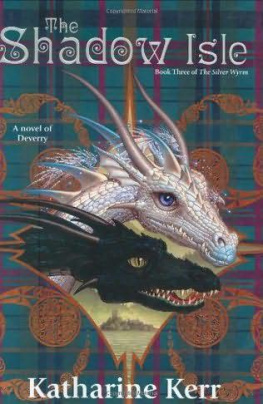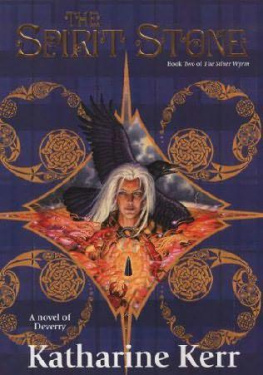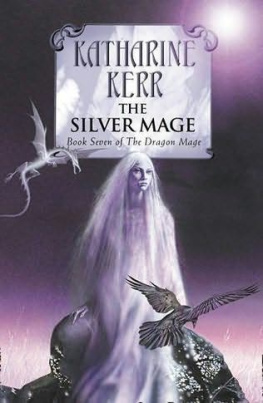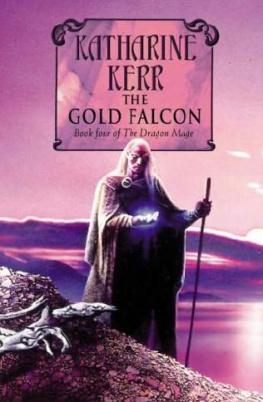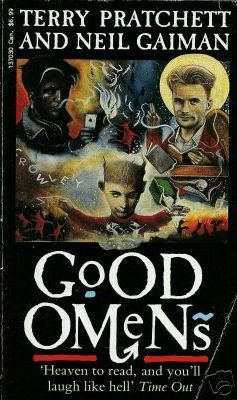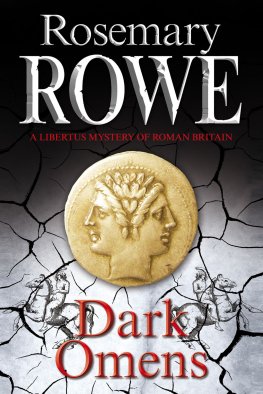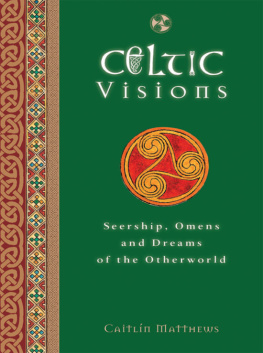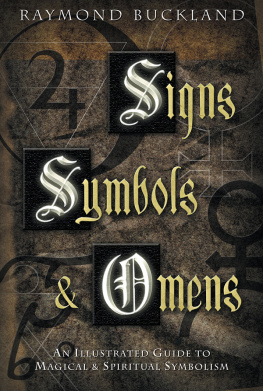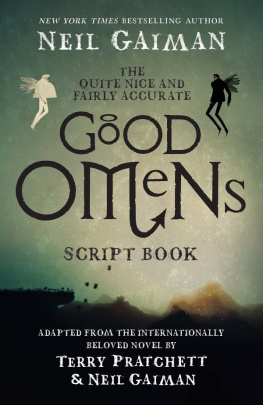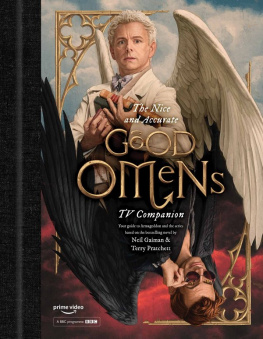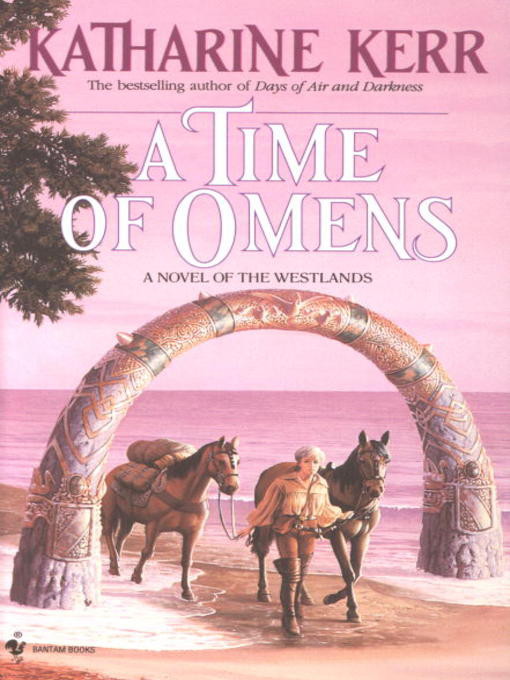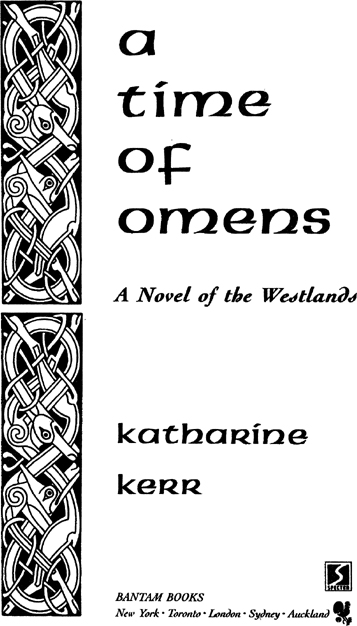The boundless imagination of
KATHARINE KERR

Her novels of Deverry and the Westlands:
DAGGERSPELL
DARKSPELL
THE BRISTLING WOOD
THE DRAGON REVENANT
A TIME OF EXILE
A TIME OF OMENS
DAYS OF BLOOD AND FIRE
DAYS OF AIR AND DARKNESS
THE RED WYVERN
THE BLACK RAVEN
THE FIRE DRAGON

Available from Bantam Spectra Books
TRAPPED
Think we can hold off a small army? We might have to. Ill wager theyre on their way to fetch a few friends.
Carra was too spent to be frightened. She leaned back against a rock and looked straight in front of her with eyes that barely saw.
Is there any water? she whispered.
Theres not, Otho said. Nor food, either. The horses bolted.
Ah, I see. Were still going to die, arent we?
No one said a word.
Dedication
For Nance Jordan Ashton
My Grandmother
Acknowledgments
As usual, I owe a lot of friends a lot of thanks.
Some are:
Brian Carnright, who keyboarded above and
beyond the call of duty,
Elizabeth Pomada, who once again performed
wonders of agenting,
Alis Rasmussen, who understands what plot
problems mean,
Mark Kreighbaum, who helped me
fine-tune the manuscript,
and as always, my husband, Howard Kerr,
who is Himself.
A Note on the Pronunciation of
Deverry Words
The language spoken in Deverry is a member of the P-Celtic family. Although closely related to Welsh, Cornish, and Breton, it is by no means identical to any of these actual languages and should never be taken as such.
Vowels are divided by Deverry scribes into two classes: noble and common. Nobles have two pronunciations; commons, one.
A as in father when long; a shorter version of the same sound, as in far, when short.
O as in bone when long; as in pot when short.
W as the oo in spook when long; as in roof when short.
Y as the i in machine when long; as the e in butter when short.
E as in pen.
I as in pin.
U as in pun.
Vowels are generally long in stressed syllables; short in unstressed. Y is the primary exception to this rule. When it appears as the last letter of a word, it is always long whether that syllable is stressed or not.
Diphthongs generally have one consistent pronunciation.
AE as the a in mane.
AI as in aisle.
AU as the ow in how.
EO as a combination of eh and oh.
EW as in Welsh, a combination of eh and oo.
IE as in pier.
OE as the oy in boy.
UI as the North Welsh wy, a combination of oo and ee. Note that OI is never a diphthong, but is two distinct sounds, as in carnoic (KAR-noh-ik).

Consonants are mostly the same as in English, with these exceptions:
C is always hard as in cat
G is always hard as in get
DD is the voiced th as in thin or breathe, but the voicing is more pronounced than in English. It is opposed to TH, the unvoiced sound as in th or breath. (This is the sound that the Greeks called the Celtic tau.)
R is heavily rolled.
RH is a voiceless R, approximately pronounced as if it were spelled hr in Deverry proper. In Eldidd, the sound is fast becoming indistinguishable from R.
DW, GW, and TW are single sounds, as in Gwendolen or twit
Y is never a consonant.
I before a vowel at the beginning of a word is consonantal, as it is in the plural ending -ion, pronounced yawn.
Doubled consonants are both sounded clearly, unlike in English. Note, however, that DD is a single letter, not a doubled consonant.
Accent is generally on the penultimate syllable, but compound words and place names are often an exception to this rule.
I have used this system of transcription for the Bardekian and Elvish alphabets as well as the Deverrian, which is, of course, based upon the Greek rather than the Roman model. In spite of the ridiculous controversy still continuing in certain university circles, I see no reason to confuse the ordinary reader with the technical method of Elvish transcription in common use among linguists and scholars. Anyone who wishes to learn this system may of course refer to the standard works upon the subject available from the University of Aberwyn Press; the average reader of popular fiction would no doubt rather forgo such a formidable experience. I am surprised at the stubbornness of certain professors of Elvish, to say nothing of a certain Elvish professor, which has forced me to append such a self-evident remark to these notes. One can only assume that these persons are underemployed by their academic institutions if they have the leisure to write scurrilous articles about contemporary novelists rather than devoting themselves to their proper areas of expertise.
Prologue
Wmmglaedd,
1096
On the Inner Planes, Time as we know it no longer exists. This is why an omen may refer to things which we perceive as long over and done with as well as to things in process at the moment in which the omen is cast and to things which we have yet to perceive at all. Past, Present, Futurethese states do not exist in the world from which an omen proceeds, yet there is no denying, of course, that they do exist in ours.
The Pseudo-Iamblicbus Scroll
In those days the eastern border of the elven lands lay in the middle of a forest. A traveler leaving the high plains and heading east came down a long gentle decline into the oaks to find several rivers that might mark a borderif only anyone at all had lived on either side of them. In that vast tangle of tree and shrub, bracken and thorn, finding the lands of men (that is, the three western provincesEldidd, Pyrdon, Arcoddof the kingdom of Deverry) was no easy job. If you wanted to go from west to east, the sandy coast of the Southern Sea made a much more reliable road, if, of course, you could fight your way south to reach it. The ancient forest had a way of tricking travelers unless they or their companions knew the route well.
The woman who rode out of the forest late on a summer day traveled with a horde of such companionsnot that most human beings would have seen them. Sylphs and sprites hovered round her in the air; gnomes clung to her saddle or perched on the back of the spare horse she was leading; undines rose out of every stream and pool she passed to wave a friendly greeting. Her friends werent the only odd thing about Jill. If you looked carefully at her silver hair, cropped short like a lads, and the fine lines that webbed her eyes round and latticed her cheeks, you realized that she had to be at least fifty years old if not somewhat more, but she radiated so much vitality, the way a fire gives off heat, that it was impossible to think of her as anything but young. She was, you see, the most powerful sorcerer in all of Deverry.


